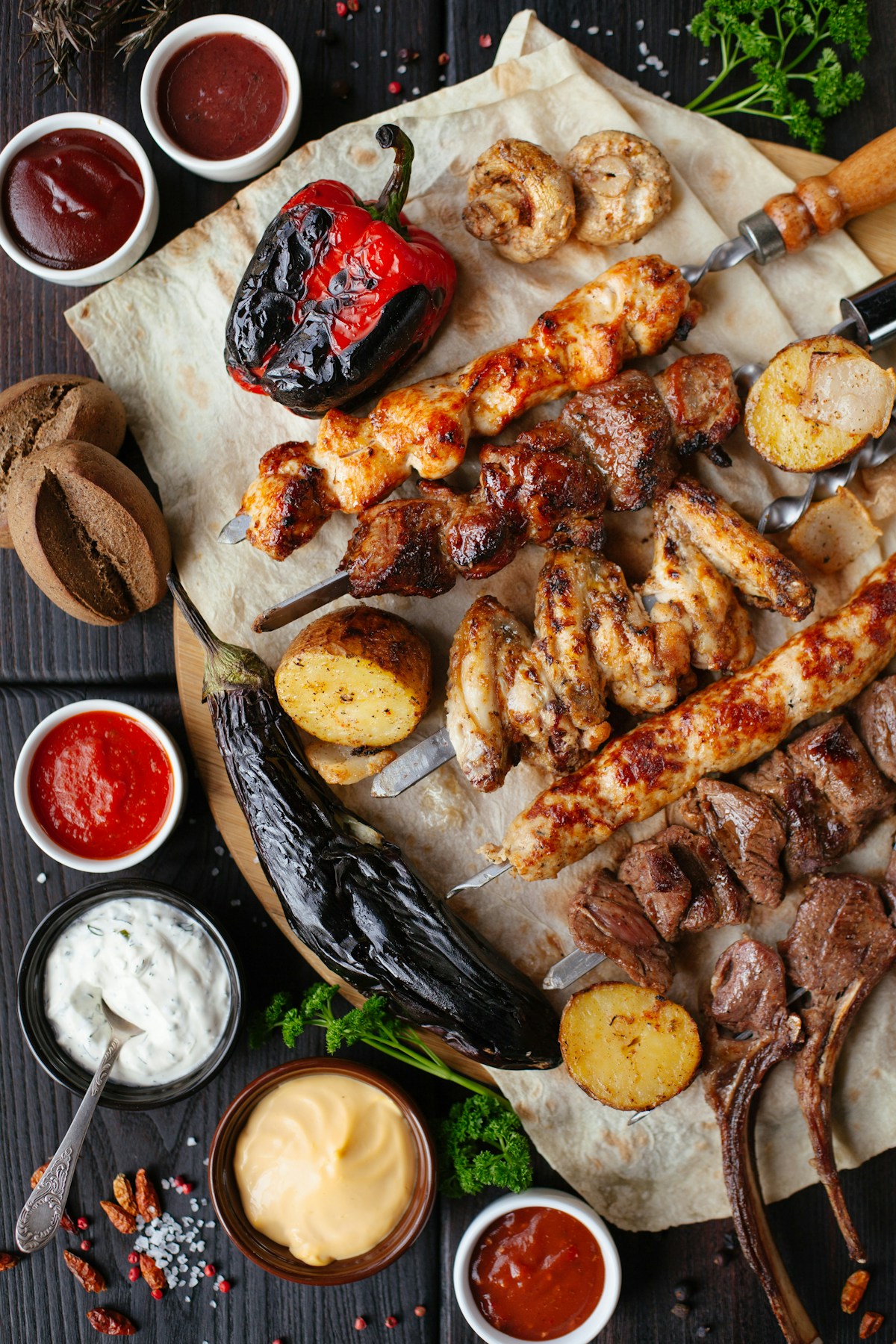Restaurats flips the cooking game genre on its head by putting you in control of rats managing a fantasy tavern. Serve vampires, orcs, and skeletons while juggling recipes, upgrades, and the chaos of 4-player co-op. Developed by toR Studio and published by Polden Publishing, this medieval restaurant simulator launched its free Steam demo in July 2025, letting players experience firsthand what it means to cook bloody meat for demanding orc patrons.
Running a Medieval Restaurant With Rat Logic
The premise sounds ridiculous because it is. You play as a rat who, instead of avoiding kitchens, decides to run one. Your goal is to lead a team of fellow rodents in managing a bustling medieval tavern where the customers are just as unusual as the staff. Cook dishes, throw food directly at guests because apparently that is acceptable service in this world, clean tables, and keep your fantasy clientele satisfied enough to leave tips rather than burn the place down.
Unlike Overcooked where you work in sterile modern kitchens with human chefs, Restaurats leans hard into its medieval fantasy setting. The tavern has wooden beams, flickering candles, and stone walls that give it authentic dungeon-adjacent vibes. Your customers include skeletons who presumably have no working digestive systems but still want dinner, vampires with very specific dietary requirements, and orcs who prefer their meat as bloody as possible. Each fantasy race has distinct preferences and patience levels, forcing you to prioritize orders strategically rather than just cooking in sequence.
The game supports solo play if you want to struggle alone, but it truly shines in cooperative mode with up to four players. Communication becomes essential as you coordinate who handles cooking, who serves tables, who cleans up the inevitable messes, and who runs damage control when a VIP customer shows up demanding immediate attention. The rat theme is not just aesthetic either. Your character can be customized and leveled up with skills that make you more efficient at specific tasks.
Recipe Complexity and Cooking Mechanics
Restaurats divides its recipes into complexity tiers. Simple dishes like basic stew can be prepared quickly with minimal steps, making them ideal when the tavern is packed and patience meters are dropping. Complex recipes require multiple ingredients, specific cooking methods, and careful timing, but they reward you with significantly more gold when executed properly. Learning which dishes to prioritize based on your current customer mix becomes a crucial skill.
The cooking mechanics themselves blend arcade simplicity with strategic depth. You grab ingredients from storage, prepare them using various kitchen stations, combine components in the correct order, and serve the finished product. Where things get interesting is the throwing mechanic. Instead of walking plates to tables like a civilized establishment, you can hurl food directly at customers from across the room. Miss your throw and you have created a mess that needs cleaning. Hit your target and you have saved valuable seconds that matter when ten customers are waiting simultaneously.
The game also incorporates equipment degradation and cleanliness mechanics. Dirty tables drive away new customers. Spilled food creates obstacles that slow movement. Used dishes pile up and need washing before you can serve the next round. These systems create layers of juggling that separate efficient rat chefs from amateur rodents who panic when the dinner rush hits.
Bonus Cards Change Everything Daily
At the end of each service day, you receive special bonus cards that modify gameplay for subsequent days. These cards can affect dish quality, alter customer behavior, provide temporary stat boosts, increase profits, or introduce chaotic modifiers that make everything harder. Some cards are obviously beneficial, like one that makes all dishes sell for double gold. Others present interesting tradeoffs, such as cards that increase customer volume but reduce their patience.
This card system injects roguelite elements into what could otherwise be a straightforward restaurant sim. Your strategy must adapt based on which cards you draw. If you get a card that makes meat dishes more profitable, you shift your menu focus toward satisfying carnivorous customers. If you draw a card that spawns more VIP guests, you need to ensure your rat crew can handle the pressure of serving demanding customers alongside regular patrons.
The randomness keeps repeated playthroughs fresh because no two runs feel identical. Your previous strategies might not work when card combinations fundamentally change the rules. This design choice aligns with the chaotic cooperative spirit the game aims for, where adaptability matters more than memorizing optimal patterns.
Building Your Ultimate Tavern
Progression extends beyond daily card draws. As you earn gold from satisfied customers, you unlock blueprints that expand and improve your tavern. New kitchen equipment increases cooking capacity. Additional dining tables accommodate more customers per service. Decorative elements boost your tavern’s attractiveness rating, which influences which types of customers visit and how much they are willing to spend.
The tavern improvement system creates long-term goals that motivate continued play. Early runs feel cramped and chaotic because you lack the infrastructure to handle heavy traffic efficiently. As you invest earnings back into your establishment, the gameplay opens up. More cooking stations mean your team can parallelize tasks. Larger dining areas reduce bottlenecks during rush periods. Upgraded storage holds more ingredients, reducing trips to resupply.
Your individual rat character also levels up independently from the tavern itself. Skill trees let you specialize in cooking speed, serving efficiency, cleaning bonuses, or movement speed. In cooperative play, team composition matters because having players specialize in complementary skills creates synergy. One rat focused on cooking can prepare dishes faster while another specializing in serving handles customer interactions more effectively.
How It Compares to Other Cooking Games
Restaurats enters a crowded genre dominated by Overcooked, PlateUp, and Let’s Cook Together. What distinguishes it is the medieval fantasy setting combined with the rat theme and roguelite card system. Overcooked focuses on increasingly absurd kitchen layouts with straightforward recipes. PlateUp adds roguelite progression but keeps a modern restaurant aesthetic. Let’s Cook Together emphasizes split-screen cooperation with physically divided kitchens.
Restaurats carves its niche by blending these concepts with fantasy customer variety and persistent tavern progression. The fact that you are rats serving orcs and vampires gives it personality that helps it stand out visually and thematically. The bonus card system borrows from games like Slay the Spire, creating builds that evolve over multiple days rather than resetting completely between sessions.
Whether this is enough to compete with established titles remains uncertain. Overcooked has brand recognition and a massive player base. PlateUp attracted the hardcore roguelite audience that craves difficulty. Restaurats needs to find players who want something in between, those seeking cooperative chaos with fantasy flavor and moderate progression hooks.
The Demo Experience
The free demo available on Steam since July 2025 gives a solid preview of core mechanics. Players can experience several days of tavern management, experiment with the cooking systems, sample the bonus card draws, and get a feel for how cooperative play functions. The demo is generous enough to determine whether the game clicks for you without feeling like a brief teaser that ends right as things get interesting.
Community response to the demo has been cautiously positive. Players appreciate the charming art style, the responsive controls, and the balance between accessibility and depth. Common criticisms mention that the tutorial could be clearer about advanced mechanics, some customers feel too similar despite being different fantasy races, and the throwing mechanic takes practice to master, which can frustrate new players during hectic moments.
ToR Studio has been actively gathering feedback and releasing updates to address concerns. The developers maintain presence in community discussions, suggesting they are committed to refining the experience based on player input before the full release.
No Release Date Yet
While the demo launched in July 2025, toR Studio and Polden Publishing have not announced a release date for the full version of Restaurats. The typical development timeline for indie games suggests a potential launch window sometime in 2026, but this is speculation. The developers appear focused on using the demo period to iterate and improve based on community feedback before committing to a final release schedule.
This extended demo phase benefits players because it allows the team to polish rough edges and expand content based on what resonates with the audience. However, it also means interested players face an uncertain wait before they can access the complete game with all planned features, additional tavern upgrades, more fantasy customer types, and the full progression system.
FAQs About Restaurats
When will Restaurats be fully released?
ToR Studio and Polden Publishing have not announced an official release date. A free demo is currently available on Steam, but the full game’s launch window remains unconfirmed. Based on typical indie development timelines, a 2026 release seems possible.
Can you play Restaurats solo or is co-op required?
Restaurats supports both solo play and cooperative multiplayer for up to four players. The game is designed to be enjoyable either way, though the chaos and coordination challenges are amplified when playing with friends.
What platforms will Restaurats be available on?
Currently, Restaurats is confirmed for Windows PC via Steam. The developers have not announced plans for other platforms like consoles or Mac, though this could change as development progresses.
Is Restaurats similar to Overcooked?
Yes, Restaurats shares core concepts with Overcooked, including chaotic cooperative cooking, time pressure, and customer satisfaction mechanics. However, it differentiates itself with a medieval fantasy setting, rat protagonists, fantasy customers like vampires and orcs, and a roguelite card system that modifies gameplay between days.
What makes the rat theme significant beyond aesthetics?
The rat characters can be customized and leveled up with skills that affect gameplay. Players specialize their rats in cooking, serving, cleaning, or movement speed, creating team compositions with complementary abilities in cooperative mode.
What are the bonus cards and how do they work?
At the end of each service day, players receive special cards that modify subsequent gameplay. Cards can increase profits, change customer behavior, provide stat boosts, or add challenging modifiers. This roguelite system ensures each playthrough feels different and requires adaptation.
How long is the free demo?
The demo provides several days of tavern management gameplay, enough to experience core cooking mechanics, customer variety, and the bonus card system. Players can determine if the game appeals to them without time restrictions, though content is limited compared to the planned full release.
Who developed Restaurats?
Restaurats is developed by toR Studio, an indie team, and published by Polden Publishing. The developers have been actively engaging with the community and updating the demo based on player feedback.
Conclusion
Restaurats takes the proven cooperative cooking game formula and adds just enough personality and progression hooks to feel distinct. The medieval fantasy setting populated by vampires, orcs, and skeletons creates visual charm and thematic cohesion. The roguelite card system borrowed from deck-builders adds replayability that purely skill-based cooking games sometimes lack. Most importantly, the rat protagonists are adorable, and watching tiny rodents frantically hurl stew at impatient skeleton customers never stops being funny. Whether it can compete with genre giants like Overcooked depends on how much content the full release delivers and how effectively toR Studio refines the mechanics based on demo feedback. For now, the free demo provides enough gameplay to satisfy curiosity, and anyone who enjoys chaotic cooperative experiences should give it a try. The worst that happens is you discover you are not cut out for rat-run tavern management, which is valuable self-knowledge.


